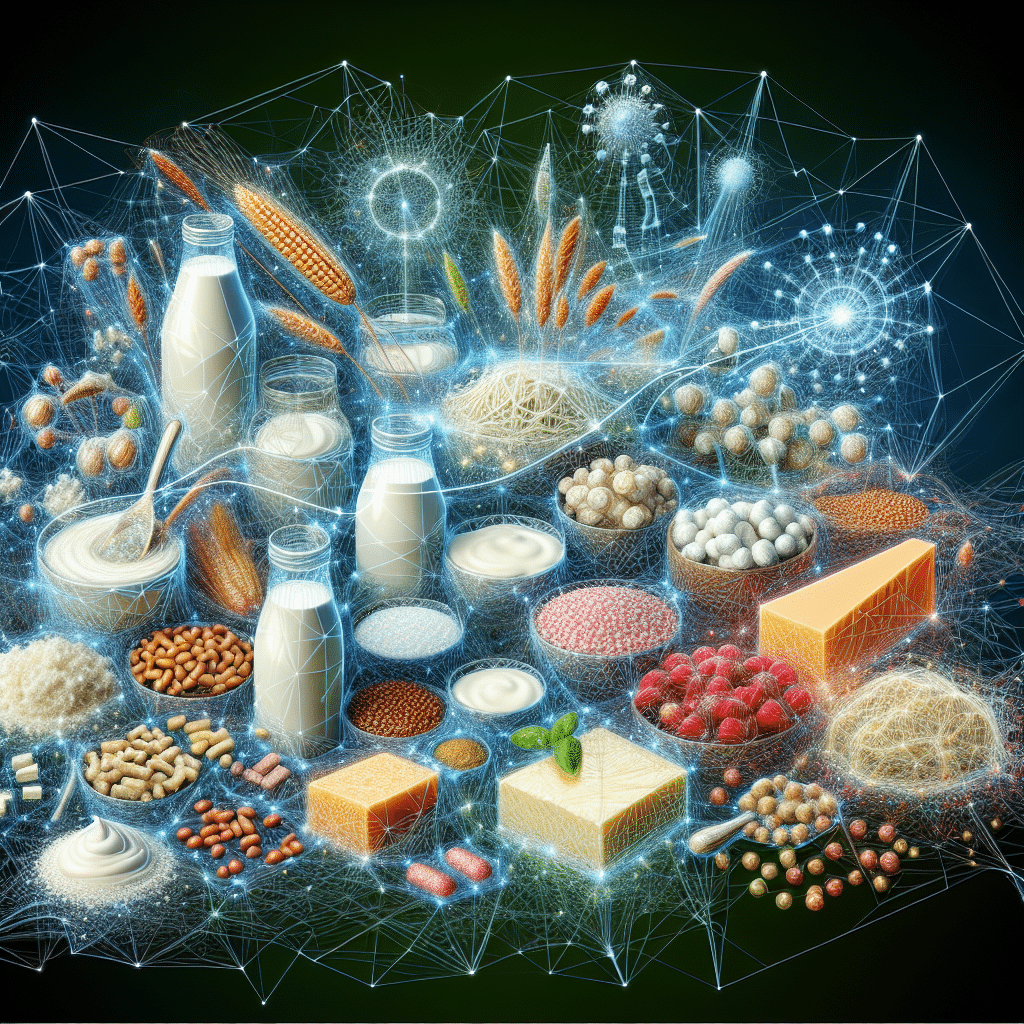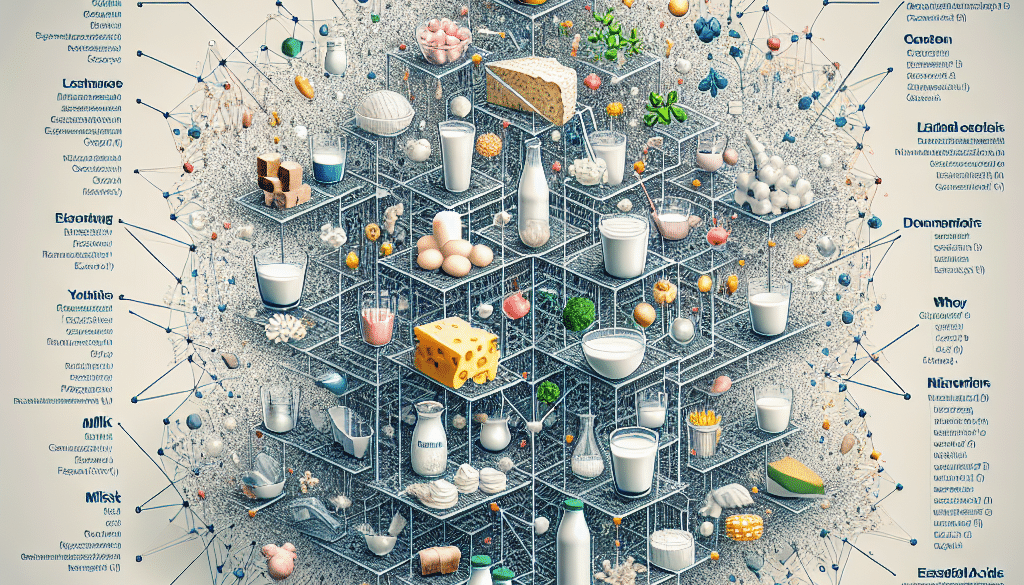Dairy Matrix Complexity: Beyond Individual Nutrients Analysis
-
Table of Contents
- Dairy Matrix Complexity: Unveiling the Whole Food Synergy
- Understanding the Dairy Matrix
- The Significance of Matrix Effects
- Case Studies and Research Findings
- Implications for Dietary Guidelines
- Statistics and Consumer Trends
- Conclusion: Embracing the Complexity of Dairy
- ETprotein: Your Source for High-Quality Protein Products
Dairy Matrix Complexity: Unveiling the Whole Food Synergy

The dairy matrix is a term that refers to the complex physical and chemical structure of dairy products, encompassing the intricate interactions between various nutrients and bioactive compounds. This concept has emerged as a critical area of study, challenging the traditional approach of evaluating dairy products based solely on their individual nutrient components. In this article, we delve into the complexity of the dairy matrix and explore how it influences the nutritional value and health impacts of dairy consumption.
Understanding the Dairy Matrix
The dairy matrix is composed of a multitude of components, including proteins, fats, carbohydrates, vitamins, minerals, and bioactive compounds, all of which interact in a dynamic and intricate manner. These interactions can affect the digestion, absorption, and metabolic pathways of the individual components, ultimately influencing the overall health effects of dairy products.
The Significance of Matrix Effects
Matrix effects refer to the influence that the structure and interactions within the dairy matrix have on the bioavailability and functionality of nutrients. These effects can alter the way nutrients are released during digestion, their interaction with other dietary components, and their subsequent absorption and utilization by the body.
Case Studies and Research Findings
Several studies have highlighted the importance of considering the dairy matrix rather than just individual nutrients. For instance, research has shown that the consumption of cheese, a complex dairy matrix, has different effects on cardiovascular health compared to the intake of equivalent amounts of milk or isolated dairy nutrients like calcium and saturated fat.
- A study published in the “American Journal of Clinical Nutrition” found that cheese consumption did not increase LDL cholesterol levels as much as would be expected from its saturated fat content, suggesting a matrix-related modulation of cholesterol metabolism.
- Another study in the “Journal of Nutrition” reported that the matrix of fermented dairy products might contribute to their beneficial effects on metabolic health, beyond the presence of probiotics.
Implications for Dietary Guidelines
The recognition of the dairy matrix’s complexity has significant implications for dietary guidelines and public health recommendations. It suggests that these guidelines should focus on whole foods and dietary patterns rather than isolated nutrients, as the matrix effects can modulate the health outcomes associated with dairy consumption.
Statistics and Consumer Trends
Consumer trends have been shifting towards whole food-based diets and away from processed foods, which aligns with the growing understanding of the dairy matrix. Statistics show an increasing demand for natural, minimally processed dairy products that retain their complex matrix.
Conclusion: Embracing the Complexity of Dairy
In conclusion, the dairy matrix’s complexity offers a more holistic understanding of dairy products’ nutritional value and health impacts. By moving beyond individual nutrient analysis, we can appreciate the synergistic effects of the dairy matrix and make more informed dietary choices.
ETprotein: Your Source for High-Quality Protein Products
If you’re looking for protein products that align with the principles of whole food nutrition, ETprotein offers a range of organic, non-GMO, allergen-free vegan proteins. Their products, including rice protein, pea protein, and various seed proteins, provide a neutral taste and high purity, making them an excellent choice for those seeking comprehensive protein solutions.
About ETprotein:
ETprotein, a reputable protein and L-(+)-Ergothioneine (EGT) Chinese factory manufacturer and supplier, is renowned for producing, stocking, exporting, and delivering the highest quality organic bulk vegan proteins and L-(+)-Ergothioneine. They include Organic rice protein, clear rice protein, pea protein, clear pea protein, watermelon seed protein, pumpkin seed protein, sunflower seed protein, mung bean protein, peanut protein, and L-(+)-Ergothioneine EGT Pharmaceutical grade, L-(+)-Ergothioneine EGT food grade, L-(+)-Ergothioneine EGT cosmetic grade, L-(+)-Ergothioneine EGT reference grade and L-(+)-Ergothioneine EGT standard. Their offerings, characterized by a neutral taste, non-GMO, allergen-free attributes, with L-(+)-Ergothioneine purity over 98%, 99%, cater to a diverse range of industries. They serve nutraceutical, pharmaceutical, cosmeceutical, veterinary, as well as food and beverage finished product distributors, traders, and manufacturers across Europe, USA, Canada, Australia, Thailand, Japan, Korea, Brazil, and Chile, among others.
ETprotein specialization includes exporting and delivering tailor-made protein powder and finished nutritional supplements. Their extensive product range covers sectors like Food and Beverage, Sports Nutrition, Weight Management, Dietary Supplements, Health and Wellness Products, and Infant Formula, ensuring comprehensive solutions to meet all your protein needs.
As a trusted company by leading global food and beverage brands and Fortune 500 companies, ETprotein reinforces China’s reputation in the global arena. For more information or to sample their products, please contact them and email sales(at)ETprotein.com today.












